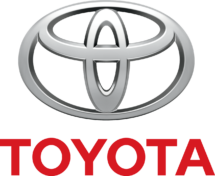

This website will offer limited functionality in this browser. We only support the recent versions of major browsers like Chrome, Firefox, Safari, and Edge.
Discover how the world's leading brands plan on Board.


Manufacturing, Specialty & Hardlines
Enterprise Performance Management at Groupe SEB



Automotive
Pan-European Planning and Reporting at Toyota Motor Europe



Fashion & Luxury
Merchandise Planning Transformation at The Very Group


Agriculture & Farming, Chemicals
BASF Agricultural Solutions launches global Sales Planning Solution on Board



Consumer Packaged Goods
Integrated Corporate Planning at Coca-Cola Europacific Partners



Pharmaceutical & Healthcare
Streamlined sales and promotion planning at Haleon Italy



Transportation & Logistics
Integrated Financial and Operational Planning at Hapag-Lloyd



Automotive
Intelligent Planning at Volkswagen Mexico



Fashion & Luxury
How SWIM USA Competes with Real-time Merchandise Planning